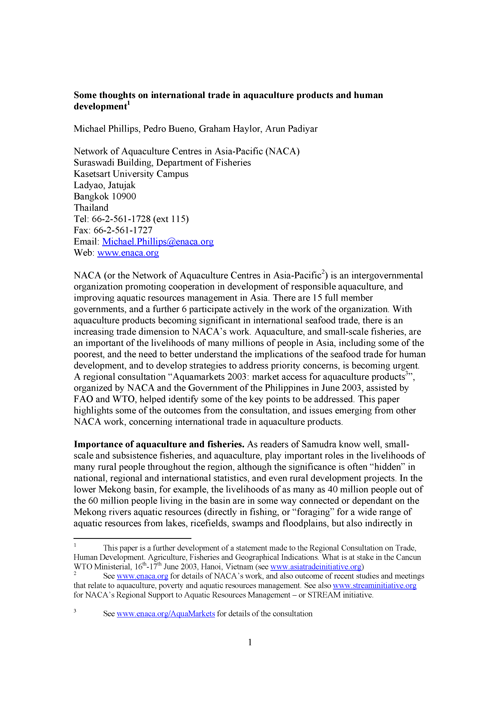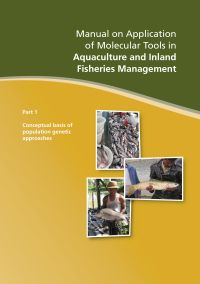Some thoughts on international trade in aquaculture products and human development
11 December 2003 | Michael Phillips, Pedro Bueno, Graham Haylor and Arun Padiyar | 866 Downloads | .pdf | 98.06 KB | Livelihoods, gender and social issues, Markets and trade
Small-scale and subsistence fisheries, and aquaculture, play important roles in the livelihoods of many rural people throughout the region, although the significance is often hidden in national, regional and international statistics, and even rural development projects. In the lower Mekong basin, for example, the livelihoods of as many as 40 million people out of the 60 million people living in the basin are in some way connected or dependant on the Mekong rivers aquatic resources (directly in fishing, or foraging for a wide range of aquatic resources from lakes, ricefields, swamps and floodplains, but also indirectly in marketing, processing and other activities). With the fishery sector as an important sector for human development in Asia, an understanding of the array of stakeholders involved, and indeed ensuring their better participation in policy setting processes and trade discussions, is necessary to bring a more human development-oriented dimension to trade policy. This paper first appeared in Samudra.
Creative Commons Attribution.

